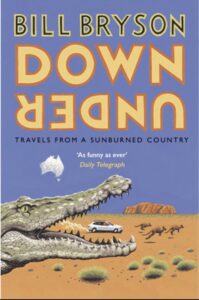Ce n’est pas une fenêtre

Intriguing feature on an internal wall of St Mary’s Church, Cong, Co Mayo.
With apologies to René Magritte.
Quote of the Day
“A guy walks into a pub with a lump of asphalt on his shoulder and says to the barman, give us a pint and one for the road.”
- Tommy Cooper
Musical alternative to the morning’s radio news
Bach | Motet Singet dem Herrn ein neues Lied BWV 225 – MacLeod | Netherlands Bach Society
From the notes accompanying the recording:
“A complete orchestra should be added to this”, wrote Mozart on his copy of Bach’s motet ‘Singet dem Herrn’, performed here by the Netherlands Bach Society for All of Bach. He was very enthusiastic about the piece, which was performed as a surprise when he visited the Thomasschule in Leipzig, in 1789. At his request, Mozart was given a copy of it. In his account of the event ten years later, Johann Friedrich Rochlitz says that Mozart even shouted “Now there’s something you can learn from!
Recorded for the project All of Bach on May 14th 2016 at the Grote Kerk, Naarden.
Long Read of the Day
Meet the curator of the human future
Many moons ago, the New Yorker ran a prescient profile of Sam Altman, the guy Microsoft has now installed as the force of nature who will get us to AGI — superintelligent machines — while all the while bleating about their dangers. After the recent chaotic upheavals at OpenAI it makes for interesting reading. And it ain’t reassuring.
Sample:
“Well, I like racing cars,” Altman said. “I have five, including two McLarens and an old Tesla. I like flying rented planes all over California. Oh, and one odd one — I prep for survival.” Seeing their bewilderment, he explained, “My problem is that when my friends get drunk they talk about the ways the world will end. After a Dutch lab modified the H5N1 bird-flu virus, five years ago, making it super contagious, the chance of a lethal synthetic virus being released in the next twenty years became, well, nonzero. The other most popular scenarios would be A.I. that attacks us and nations fighting with nukes over scarce resources.” The Shypmates looked grave. “I try not to think about it too much,” Altman said. “But I have guns, gold, potassium iodide, antibiotics, batteries, water, gas masks from the Israeli Defense Force, and a big patch of land in Big Sur I can fly to.”
Altman’s mother, a dermatologist named Connie Gibstine, told me, “Sam does keep an awful lot tied up inside. He’ll call and say he has a headache—and he’ll have Googled it, so there’s some cyber-chondria in there, too. I have to reassure him that he doesn’t have meningitis or lymphoma, that it’s just stress.” If the pandemic does come, Altman’s backup plan is to fly with his friend Peter Thiel, the billionaire venture capitalist, to Thiel’s house in New Zealand. Thiel told me, “Sam is not particularly religious, but he is culturally very Jewish—an optimist yet a survivalist, with a sense that things can always go deeply wrong, and that there’s no single place in the world where you’re deeply at home.”
You get the point. Read on.
(Paul Graham, a shrewd observer of people — who promoted Altman to run his YC “accelerator” — once observed that “You could parachute him into an island full of cannibals and come back in five years and he’d be the king.”)
Preserving our digital content won’t come cheap
Yesterday’s Observer column
Way back in 2004 the two founders of Google, Larry Page and Sergey Brin, thought that it would be a cool idea to scan all the printed books in the world and make them available online. This was at the time when their company’s motto (apart from the guff about not being evil) was to “organise all the world’s information”. Given that the obvious places to look for large collections of books are university libraries, they decided to start there, so they set out to persuade university librarians to let them scan their holdings.
One of the first institutions they approached was a very large American university: they went to visit its librarian and found him very supportive of their ambitious project. Accordingly, the deal was easily sealed. Afterwards, though, the boys noticed that their librarian friend seemed pensive, and so asked him what was wrong. “Nothing’s wrong,” he replied. “I’m just wondering how we can ensure that these scans will be available to readers in 400 years’ time when Google is no longer around. Because it won’t be.” When the librarian told me the story, he remarked that the two lads looked astonished: the thought that Google might be mortal seemed never to have occurred to them. But of course he was right: the lives of most corporations are short…
Books, etc.

For family reasons I need to know more about Australia and so happened on Bill Bryson’s book, thinking that it might be a jocular romp around a faraway country about which I knew little. In fact it turns out to be a pretty readable and serious exploration of a unique continent-cum-country. On my first flight to it I remember looking out of the aircraft window and spotting the coast of northern Australia and thinking “oh good, we’re nearly there” (Sydney, our destination). I then spent four hours staring out of the window at brown featureless wastes. Bryson drove to and through many of these wastes in an automobile, and his record of what he discovered and learned was an eye-opener, at least for me.
My commonplace booklet
The best introduction to LLMs (Large Language Models).
Terrific one-hour video by Andrej Karpathy of OpenAI. His slides are also available as a PDF file.
This Blog is also available as an email three days a week. If you think that might suit you better, why not subscribe? One email on Mondays, Wednesdays and Fridays delivered to your inbox at 6am UK time. It’s free, and you can always unsubscribe if you conclude your inbox is full enough already!
